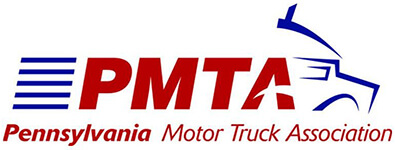California’s Advanced Clean Fleets Rule May Affect You
PMTA members should be aware that the California Air Resources Board’s (CARB’s) Advanced Clean Fleets (ACF) rule, which requires truck owners to transition to zero-emissions trucks over the coming years, applies to fleets hauling in California, regardless of where their trucks are registered.
Two categories of truck/fleet are affected:
Drayage Trucks
Class 7 and 8 drayage trucks that visit a seaport or intermodal railyard facility must be reported to the CARB online drayage database by December 31, 2023. In 2024, any diesel vehicle not registered will no longer be able to access a seaport of intermodal railyard.
Starting January 1, only zero-emission trucks can register in the CARB drayage database, and a diesel truck can only be replaced with a zero-emission truck. By 2035, all California drayage trucks must be zero-emission vehicles.
High-Priority Fleets
High-Priority Fleet requirements apply to fleets with 50 or more trucks (Class 2b to 8) or with annual revenue of $50 million or more. These fleets have two options to comply with ACF:
1. Model Year Schedule Option – Fleets must retire trucks at the end of their useful life, and only zero-emission trucks or near-zero emission alternatives until 2035 can be added to the fleet.
2. Milestone Phase-In Option – Fleets must turn over a percentage of their fleet by specific dates for each vehicle size, allowing them to add internal combustion engine trucks to their fleets as long as they meet required milestones for zero-emission percentages. For example, fleets must transition 10% of class 7 and 8 day cab tractors by 2025 and 10% of sleeper cab tractors to zero-emissions alternatives by 2030.
Useful Life Provision
Under this provision of the rule, regulators cannot force commercial vehicle retirement, replacement, or repower until the later of 13 years of 800,000 miles, with a maximum of 18 years from the model year the engine and emission control system is certified by CARB.
There are several exemptions for specific fleets based on equipment availability, operational needs, and infrastructure delays. Please see the California Trucking Association’s ACF Resources page for details. PMTA’s sister organization, CTA, has challenged ACF in court.
Pennsylvania has not adopted CARB’s Advanced Clean Fleets Rule or its corollary, the Advanced Clean Trucks (ACT) Rules, which requires dealers to sell increasing percentages of no-emissions trucks in states that have adopted it. PMTA will oppose them if they are considered here.
Pennsylvania has, however adopted CARB’s Omnibus Low-NOx Rule, which dramatically reduces NOx emissions by overhauling emissions standards, testing procedures, and other emissions-related requirements for heavy-duty diesel engines starting in 2024. Earlier this year, PMTA and four of its members filed a lawsuit opposing Pennsylvania’s attempt to outsource regulations on truck sales to California regulators.
